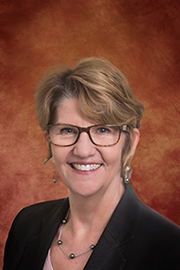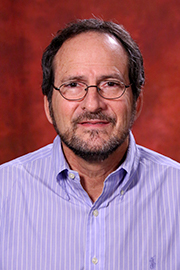CONTACT: Les Beitsch
(850) 645-1830
les.beitsch@med.fsu.edu
By Ron Hartung
October 2009
TALLAHASSEE, Fla. -- The Florida State University College of Medicine is using its statewide network of clinical faculty to study better ways to equip primary-care physicians to help patients stop smoking.

Andrée Aubrey, MSW, LCSW

Leslie M Beitsch M.D., J.D
The 12-month project is being conducted by Andrée Aubrey, director of the Area Health Education Center located at the college, and Les Beitsch, M.D., the college’s associate dean for health affairs, through a contract with the Florida Department of Health.
“This is an important project for the health of all Floridians,” said Mike Muszynski, M.D., the college’s regional campus dean for clinical research. “It is also the first study of its kind to test the effectiveness of a novel educational approach in training community physicians on the most effective tobacco-cessation methods for their patients. Should this prove as effective as expected, it will also lay the groundwork for similar evidence-based medical care approaches utilizing the College of Medicine’s statewide Clinical Research Network.”
The College of Medicine has campuses in six cities: Daytona Beach, Fort Pierce, Orlando, Pensacola, Sarasota and Tallahassee. Physicians who practice in each of those cities teach the FSU medical students. Out of those 1,500 physicians, researchers aim to get about 75 who are in family medicine, general internal medicine or geriatric medicine to participate in this project. Project researchers have sent a brief survey to the targeted clinical faculty.
“Physicians want to help their patients quit smoking,” Aubrey said. “They just need help in knowing how.”
In “Treating Tobacco Use and Dependence,” the U.S. Department of Health and Human Services notes that physicians are in a great position to help: Most smokers see a physician or other health professional every year; most want to quit; and most pay attention to what physicians say. “Unfortunately,” the department guidelines note, “clinicians and health systems do not capitalize on this opportunity consistently.”
This project is designed to determine the effectiveness of an approach called academic detailing. Instead of attending an educational seminar, Aubrey explained, the physicians will receive onsite training from certified tobacco-cessation specialists. Everything will be tailored to that individual practice.
The ultimate goal is to have fewer people smoking. Each year in the U.S., tobacco use accounts for more than 435,000 deaths.

